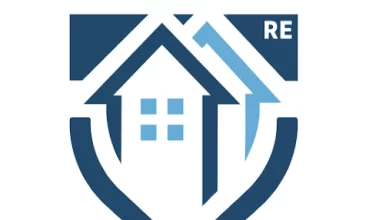In an industry where 30,000 professionals fell victim to violent crimes last year alone, one startup founder is leveraging her military background to transform real estate safety. Vanessa Ma...
Actuary to Innovator: How Armadillo is Advancing the Home Warranty Industry




By addressing long-standing pain points and expanding into underserved markets, Armadillo is making waves in an industry plagued by customer dissatisfaction and low market penetration. Founded in 2021 by Matan Slagter and Lansdon Robbins, the company has quickly gained traction with its innovative approach to home warranty services. Robbins, a serial entrepreneur, has built and sold multiple companies in the insurance and warranty verticals to Fortune 50 companies.
“We examined the major home warranty companies and found a consistent pattern of consumer complaints,” says Matan Slagter, CEO of Armadillo, a home warranty startup challenging industry conventions. “We believed we could design a product from first principles that would function differently and more effectively.”
From Insurance Executive to Entrepreneur
Slagter’s journey to founding Armadillo began with a deep background in the insurance industry. Starting his career as an actuary at French reinsurance giant SCOR, he later moved to AIG where he spent a decade in various roles across the property and casualty division.
At AIG, Slagter earned a distinctive job title: Head of Market Disruption. “I approached the CEO and suggested creating a small team focused on emerging innovation,” Slagter recalls. “The role was initially conceived as Chief Innovation Officer, but the CEO wanted something more distinctive. He said, ‘Everyone has a Chief Innovation Officer nowadays. Let’s call it something else.’ And he created the title Head of Market Disruption.”
In this position, Slagter led a team analyzing emerging market trends, investing in promising startups, and forming strategic partnerships. The experience introduced him to the growing InsurTech movement—the insurance industry’s equivalent of PropTech in real estate—and sparked his entrepreneurial ambitions.
“I became fascinated with the idea of starting my own company after meeting innovative startups,” Slagter explains. “I discussed it with my wife for about four years until she finally said, ‘You’ve talked about this long enough. Just do it. I support you.'”
Identifying a Market Ripe for Innovation
When making the entrepreneurial leap, Slagter partnered with a co-founder who had previously sold a warranty business to AIG. Together, they identified home warranty as a sector ready for disruption.
The opportunity was compelling for two key reasons: First, despite being a standard offering in many real estate transactions, home warranties had developed a poor reputation among consumers. Second, market penetration was strikingly low, only about 4% of all homeowners had a home warranty when Armadillo launched.
To understand the market’s challenges, Slagter and his team conducted extensive research. “We reviewed Facebook and Google reviews and analyzed thousands of actual customer comments from these companies,” he explains. “We compiled this data and identified the most significant issues customers were reporting.”
The research revealed several common frustrations: difficulty filing claims and reaching customer service, unclear coverage terms buried in fine print, and limited options for service technicians. These insights became the foundation for Armadillo’s product design.
Reimagining the Home Warranty Experience
Armadillo’s approach isn’t defined by a single innovation but rather by numerous improvements to the traditional model. Perhaps the most significant is their hybrid service network.
“Our most important feature is giving homeowners the choice to use their own technician or to request someone from our network,” Slagter explains. “Traditional home warranty companies require you to use their network of technicians. Some newer companies only allow you to use your own technicians. We’re the first to offer a hybrid model.”
This flexibility allows homeowners to work with trusted local professionals when available, while still having access to Armadillo’s vetted network when needed. The company even provides guidance on when each option might be preferable.
Another key innovation is Armadillo’s commitment to transparency. Inspired by the Domino’s Pizza tracker, the company developed a system that provides continuous updates throughout the service process. “When your refrigerator fails or your air conditioning stops working during hot weather, these are significant issues,” Slagter notes. “Customers expect ongoing communication.”
Learning Through Trial and Error
Like many startups, Armadillo has refined its approach based on real-world feedback. One early adjustment involved policy language.
“When we launched, we aimed to eliminate fine print and create clearer policy language,” Slagter recalls. “We implemented a concise contract—two pages instead of the typical 10 to 15 pages.”
While well-intentioned, this approach created unexpected problems. “Without specific contract language, we lacked clarity when adjudicating claims,” Slagter admits. “The simplified contract created ambiguity for our customers and for our customer service representatives, resulting in increased frustration and confusion.”
The company adjusted by developing a more comprehensive contract designed for clarity, while enhancing upfront communication about coverage details.
Similarly, the “use your own technician” feature required additional safeguards. “We needed to implement controls to prevent situations where customers might replace entire systems and submit invoices without prior approval,” Slagter explains. “When homeowners use their own technicians, those professionals sometimes recommend more extensive work than necessary.”
The solution was a pre-approval process for larger expenses: “We established a system with approval limits. For expenses exceeding those limits, customers must submit a diagnosis for pre-approval, providing clarity about what’s covered.”
Unexpected Market Success
While Armadillo initially targeted first-time homebuyers unfamiliar with home maintenance responsibilities, the company has found success across a broader demographic range than expected.
“Our customer demographics are quite diverse,” Slagter says. “We serve older, retired homeowners; younger, new homeowners; and many landlords, which was unexpected.”
The landlord segment developed organically through a partnership with a property management platform. “We established a partnership with a PropTech company serving landlords, which featured Armadillo in their interface,” Slagter explains. “We didn’t anticipate significant results, but it’s become one of our most effective channels.”
For landlords with fewer than 20 units, Armadillo offers two key benefits. First, it eliminates the need to manage maintenance calls from tenants. “Landlords can direct tenants to contact Armadillo directly,” Slagter explains. “They don’t need to respond to middle-of-the-night emergencies. Our call center operates 24/7.”
Second, it converts variable maintenance expenses into more predictable fixed costs. “It transforms variable property expenses into fixed costs, as we cover repairs and replacements,” Slagter notes. “This creates a more predictable budget for property owners.”
A Growing Market with Significant Potential
The home warranty market has expanded significantly since Armadillo’s launch. “Market penetration was 4% when we started four years ago. Today, it’s 6%, representing 50% growth,” Slagter observes. “That’s substantial market expansion.”
This growth may be attributed to increased marketing efforts from warranty providers rather than changing consumer preferences. However, underlying trends support the value proposition of home warranties, particularly for new homeowners.
“The post-purchase stress related to home maintenance costs is often unanticipated,” Slagter explains. “After making the initial investment, many homeowners are surprised to learn that maintenance typically costs about 2% of the home’s value annually.”
Industry projections suggest continued growth. “Based on industry research, market penetration is expected to reach 10%,” Slagter notes, referencing insights from a colleague who leads one of the largest home warranty companies.
Looking Forward
As Armadillo continues to develop, its focus remains on enhancing the homeowner experience. “Our primary focus is the homeowner. We believe that creating the best possible product for homeowners benefits everyone involved, especially real estate agents,” Slagter emphasizes.
The company’s technology roadmap includes both system improvements and new features, with artificial intelligence enhancing operational efficiency. “We operate in development sprints with flexibility to adjust priorities quickly,” Slagter explains. “We move faster than traditional home warranty companies, implementing changes more rapidly.”
For real estate professionals, Armadillo represents a fresh alternative in a category that has struggled with customer satisfaction. By addressing the pain points of traditional home warranties and expanding into underserved segments like landlords, the company is contributing to growth in a historically limited market.
As Slagter concludes: “We aim to continue participating in this market expansion. Capturing even a portion of that growth will be a significant achievement for us.”
Similar Articles
Explore similar articles from Our Team of Experts.


In an industry limited by outdated technology, Mike Lewis and his team at LoanPASS have achieved something significant: they have developed a loan decisioning engine that not only matches bu...


As mortgage qualification standards continue to tighten – with minimum credit score requirements jumping from 650 to 670 in recent months among major lenders – one company is add...


In Miami’s competitive real estate market, where traditional lenders increasingly rely on automated systems to approve straightforward applications, Krebs has built a thriving business...


In an era where digital transformation is reshaping property management, brokerage operations, and client acquisition strategies, the team at iCloudReady are pioneering comprehensive PropTec...




